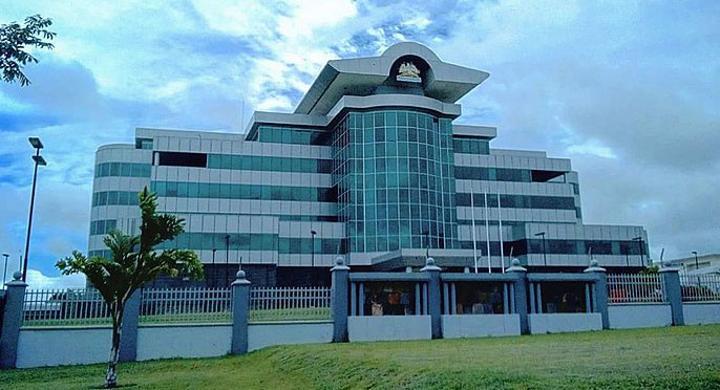By Taonga Sabola
Africa-Press – Malawi. Mafuta MwaleThe International Monetary Fund (IMF) has said a unified and market clearing exchange rate is critical to reducing imbalances and supporting Malawi’s growth objectives.
But Reserve Bank of Malawi Governor Macdonald Mafuta Mwale Wednesday evening told The Daily Times that they have made it clear to the IMF that Malawi has had a lot of devaluations without achieving the intended result and that the country cannot repeat that because it only hurts the people with inflation.
The observation from the IMF comes at a time the kwacha’s official exchange rate has remained stable, at around K1,751, to the greenback is trading at just around K3,000 on the black market.
In a statement released on Wednesday, at the end of two-weeks of Article IV consultation with the local authorities, the IMF team, led by Justin Tyson, observed that the current regime, which is characterised by a large and volatile spread between the parallel and official rate, creates distortions, impedes exports, subsidises some imports and encourages informality and tax avoidance.
The consultations were aimed at restoring macroeconomic stability and ensuring the success of structural reforms that are needed to foster strong, inclusive and durable growth.
The team further says foreign direct investments and official aid flows are discouraged, and domestic revenues reduced.
It notes that eliminating imbalances requires unifying the official and parallel exchange rates at a level that reflects fundamentals and one [level] that would help stabilise the foreign exchange market.
According to the team, consistency among the de facto exchange rate regime, the monetary policy framework and fiscal policy are needed to ensure sustainable growth.
Further, the IMF has said returning to a sustainable fiscal adjustment path is a priority.
Among other things, the fund said tackling the rising interest bill would create space for domestically-financed investment and pro-poor spending, while also ameliorating the sovereign-bank nexus.
“Domestic revenue mobilisation is urgently needed to achieve fiscal sustainability in an equitable way.
“This could be achieved through a combination of broadening the tax base and tax policy instruments (e.g., reducing exemptions, and personal and corporate income tax reform). Improving wage bill efficiency and rebalancing expenditures towards human capital and social protection could support these efforts,” the statement reads.
While applauding progress made by authorities in expanding the coverage of the Integrated Financial Management Information System (Ifmis), bank reconciliations and increasing the efficiency of public investment, the IMF says reform efforts should continue to, inter alia, enhance budget development, execution and reporting, improve the procurement system and strengthen State Owned Enterprises (SOE) oversight.
The Bretton woods institution has also said decisive steps are needed to restore debt sustainability, with the public debt stock now hovering around K16.1 trillion.
“The authorities have achieved some progress with their bilateral creditors and continue to engage with their external commercial creditors to ensure that external debt is sustainable.
“Tangible progress on external debt restructuring could pave the way for new concessional inflows. This should be supported by steps to reduce the cost of domestic borrowing,” the fund says.
In an interview Wednesday, RBM boss Mafuta Mwale said unification of the two [official and parallel] markets could only happen through the elimination of the illegal parallel market and not devaluation.
“You don’t unify with illegal activities. We have made it clear to the IMF that we have had a lot of devaluations without achieving the intended result and we cannot repeat that because it only hurts our people with inflation.
CHIKADZA—This can impact the country’s imports“Our emphasis is now on the enhancement of foreign exchange supply through local production and exportation, incentivising both local and foreign investors and seeking other donors to assist Malawi as we develop our own capacity to generate export proceeds,” Mafuta Mwale said.
Economics Association of Malawi (Ecama) President Bertha Bangara Chikadza Wednesday said unification of the official and parallel markets was not feasible at the moment.
“Not just because we are three months to elections but [because] the country has never benefitted fully from the past acts of trying to unify the parallel and official exchange rates.
“The current inflation problems, which we are struggling with, are the effects of the 44 percent devaluation that we had over a year ago. Therefore, given the already high inflation rate, further adjustments could worsen price instability.
“In addition, this can impact the country’s imports on essential commodities such as fuel, fertiliser and medicines because a sudden move in the exchange rate could make imports more expensive, worsening the food security that the country is experiencing and fuel costs,” Chikadza said.
She added that this could further exacerbate the social and economic strain on Malawians because households and businesses were already struggling with high costs and may face further financial pressure.
On May 14 this year, Malawi’s Extended Credit Facility (ECF) programme with the IMF automatically terminated, a development that saw Lilongwe forfeiting about $140 million of the $175 million four-year facility after just one disbursement.
ChakweraSpeaking recently, when he opened the 2025 Malawi International Trade Fair in Blantyre, President Lazarus Chakwera revealed that the IMF had demanded reductions in investment programmes such as the National Economic Empowerment Fund (Neef), currency devaluation and increases in electricity and fuel prices as conditions for continued financial support.
Chakwera emphasised that accepting such conditions would have been detrimental to Malawi’s business community, particularly small-scale enterprises that are dependent on affordable electricity.
“When the IMF loan programme told us that if we do not reduce investment in programmes like Neef, or if we do not lower our currency, or if we do not increase the price of electricity and fuel, I said, ‘stop it’.
“We cannot allow someone to come and lie and tell us that the money is intended to help businesspeople in Malawi because, by increasing the price of electricity, you have killed our salon businesses, hairdressing businesses; all businesses that depend on electricity,” Chakwera said.
Source: The Times Group
For More News And Analysis About Malawi Follow Africa-Press






